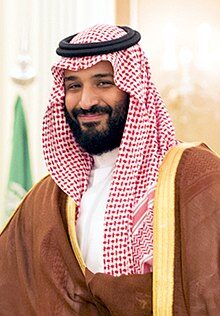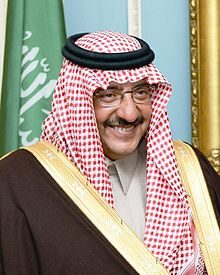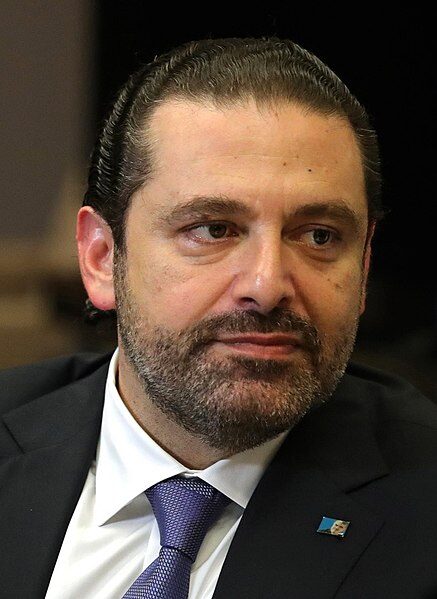KHASHOGGI MURDER: THE DOMESTIC CONSEQUENCES FOR THE SAUDI KINGDOM

Mohamed bin Salman
Saudi Arabia is governed by an absolute monarchy that rules without any restraints: no respect for human rights, no possibility of exercising some form of dissent against the policies of the regime. The murder of Jamal Khashoggi is the direct consequence of this approach.
What might have been inadequately estimated is the political row the killing of the journalist would have set off. And this explains the blatant lies, the botched cover up and false attribution of responsibilities to shield the Saudi Kingdom and the man in the line of fire, Crown Prince Mohammed bin Salman, from the PR disaster. After all, the King’s son is the rising death star of the Saud and, inevitably, all fingers were pointed at him.
Skipping the line
The Saudi royal family, composed of around 15 thousand individuals ranging from princes, princesses and relatives, is run like a corporation where business, money and political influence are intertwined around a common goal: the survival and prosperity of the kingdom. The dynastic system is governed by a set of rules, usually based on age: the eldest surviving brother takes over from his dead predecessor. King Salman has decided to break these rules. He set aside the designated Crown Prince, his half-brother Muqrin – he is the son of a Yemeni concubine and was born outside one of king Abdul Aziz’s 22 official marriages -, and his other brother, Ahmed bin Abdul Aziz, who decided to give up his right alongside 9 other brothers, half-brothers. This meant it was the nephews’ turn to rise to the throne. Nominated Crown Prince in April 2015, Mohamed bin Nayef – hadn’t his father Nayef died prematurely he would have been king before Salman –, a man in his 60s, was abruptly demoted after only two months. Guess who replaced him? King Salman’s own son, Mohammed bin Salman. This was an abuse even by the Kingdom’s own standards. The King favored his family and, in a blatant show of nepotism, designated the 30 years old Crown Prince. The violation came with consequences. Mohammed bin Salman knew he couldn’t obtain the support of the Royal Court and chose to concentrate all the power in his hands. Firstly, he arrested or sidelined all those relatives who could claim a line of succession to the throne. He appointed a series of loyalists to oversee security and the National Guard. He then appointed himself as Minister of Defense, of Interior, head of the Security Services, the Economic Commission and even Secretary General of the Royal Court (the position decides who can talk to the king and who can’t).
In a crescendo of royal bullying, Salman’s son has decided to rid the kingdom of any dissent, and did so brutally.

Mohamed bin Nayef
A stockpile of mistakes Mohammed bin Salman is accumulating a series of mistakes, both domestically and internationally. He dove into the conflict in Yemen against the Houthis with disastrous results: loss of troops, rare victories, soaring costs and a huge humanitarian crisis entangling Saudi Arabia’s southern border that has only brought more instability. His problem now is pretty simple: how do I get out of the conflict without losing my face? The relationship with his neighbors, namely Qatar, are also strained. The Gulf Cooperation Council has been used to decree sanctions against the emirate. But the end result was that Qatar has turned to Iran and Turkey for support. In another show of arrogance Lebanese Prime Minister Saad Hariri was humiliated. He was invited to Ryad, arrested, beaten, forced to step down and to declare his hostility to Iran. Salman wanted to interfere in the domestic affairs of a foreign government and have Hariri turn against Hezbollah. The attempt failed miserably, as Hariri returned to Lebanon as a Prime Minister. Domestically, Mohammed bin Salman has been accumulating enemies inside the royal court. He thinks he can turn Saudi Arabia into a police state. Even the Wahabi clergy, whose role is vital in allowing the Sauds to hold onto power, has been marginalized. The young Crown Prince seems incapable of assessing the consequences of his own actions and believes he can get away from just about anything with impunity. He is ruthless about it, brutal in pursuing his goals and possibly fearful that someone might come for him in the near future. In such a short period of time Mohammed bin Salman has accumulated so many misjudgments that one might wonder what could happen if he were to become king. The latest incident, the murder of Jamal Khashoggi, is not just a brutal homicide, but the manifesto of a man that could destabilize both Saudi Arabia and the Middle East. He might have some skills as a communicator, after all he had gained some international praise in his early steps at the them, but definitely a terrible strategist.

Saad Hariri
The reformer Mohammed initially labelled himself, both at home and abroad, as the man of the reforms, he that would have taken his country out of the extremist Wahabi Middle Ages into the modern age. Women were allowed to drive, watch a football match in public, listen to music, go to the movies, tourist visas were finally released. Bin Salman was telling the world: we are changing. Behind the curtains of a successful PR campaign to rebrand Saudi Arabia came the repression. Political and military leaders were replaced overnight, dissidents and opponents were jailed, mass arrests and purges followed. In order to control the economy, minister, formers ministers and members of the royal family were detained (although in 5 Star Hotels) in the name of the fight against corruption. The truth is they were forced to relinquish part of their wealth to the State. Forced nationalizations and foreign investments completed the picture. According to several foreign analysts, too many reforms too quickly were just an excuse to strengthen the power of the Crown Prince.
The responsibility
Nothing happens in Saudi Arabia, especially when it comes to security, without the approval of Mohammed bin Salman. His ailing father has handed all the control over to his son. This could mean that the old king wasn’t even informed about the operation against Khashoggi, but his son definitely was. Any attempt to blame others for the murder, to convict to death those responsible for the killing, to show sympathy in public for Khashoggi’s own son are a series of useless attempts to shift the blame from the Crown Prince and to save his face. But it’s too late now. Even the CIA has officially acknowledged Mohammed bin Salman’s role in the murder, including recorded conversations in which the Crown Prince revealed his intention to kidnap the journalist.
What could happen
It is very unlikely that King Salman will demote his son from the line of succession to the throne. It would be a crushing defeat having to admit he was wrong, especially when his own son is involved. The hope is that, as time goes by, people will forget what Mohammed bin Salman did to Jamal Khashoggi. A temporary solution would be to dilute the extreme concentration of power in the Crown Prince’s hands. But this would imply an admission of guilt and could weaken Mohammed. King Salman could even decide to demote Mohammed and choose his older brother, Faisal bin Salman, to keep the succession within the family lines. This does not mean that the other wannabe kings in Saudi Arabia will give up fighting, only that the battle is yet to come. Mohammed bin Nayef is still a candidate, as is his cousin Mutaib bin Abdullah. He was removed from the National Guard, arrested for corruption and then freed after a 1 billion dollars bail. His good relationship with the beduin tribes make his politically strong. His uncle Muqrin bin Abdul Aziz is also another potential candidate that could shift the succession line back to the brothers of the king instead of the nephews. As his Ahmed bin Abdul Aziz, who lived in self-imposed exile in London and is an opponent of the war in Yemen. He was greeted by several members of the royal family upon his return from the UK. The Allegiance Council in Saudi Arabia determines the new king and also assesses whether the current ruler is fit enough to continue holding his post. Created in 2007, the council includes 34 members from the royal family. To date it has played a marginal role and has basically always ratified the king’s decisions. It is withing the Allegiance Council that the different branches of the Saud family compete for influence. The Sudairi (the most influential wife of Abdul Aziz), that currently occupy the throne with king Salman, and other clans, as the Abdullah and the Nayef. The Saudi political system was based on mediation and compromise. Disputes were solved through negotiations. Salman has broken with the past, leaving room for intrigues, infighting and turbulent days ahead.
How will the Crown Prince react?
Saudi Arabia’s near future depends on how Mohammed bin Salman intends to react to the growing dissent against him. Despite his father’s unconditional support, the Crown Prince is aware of that fact that several members withing the royal court don’t approve of his ascension to the throne. More so now after the Khashoggi affair. To date the Prince has reacted with authoritarianism and arrogance, instead, as would have been appropriate, through dialogue. His authoritarian ways have relied on repression and violence. What remains to be seen is whether repression will leave room to dialogue and compromise. 
